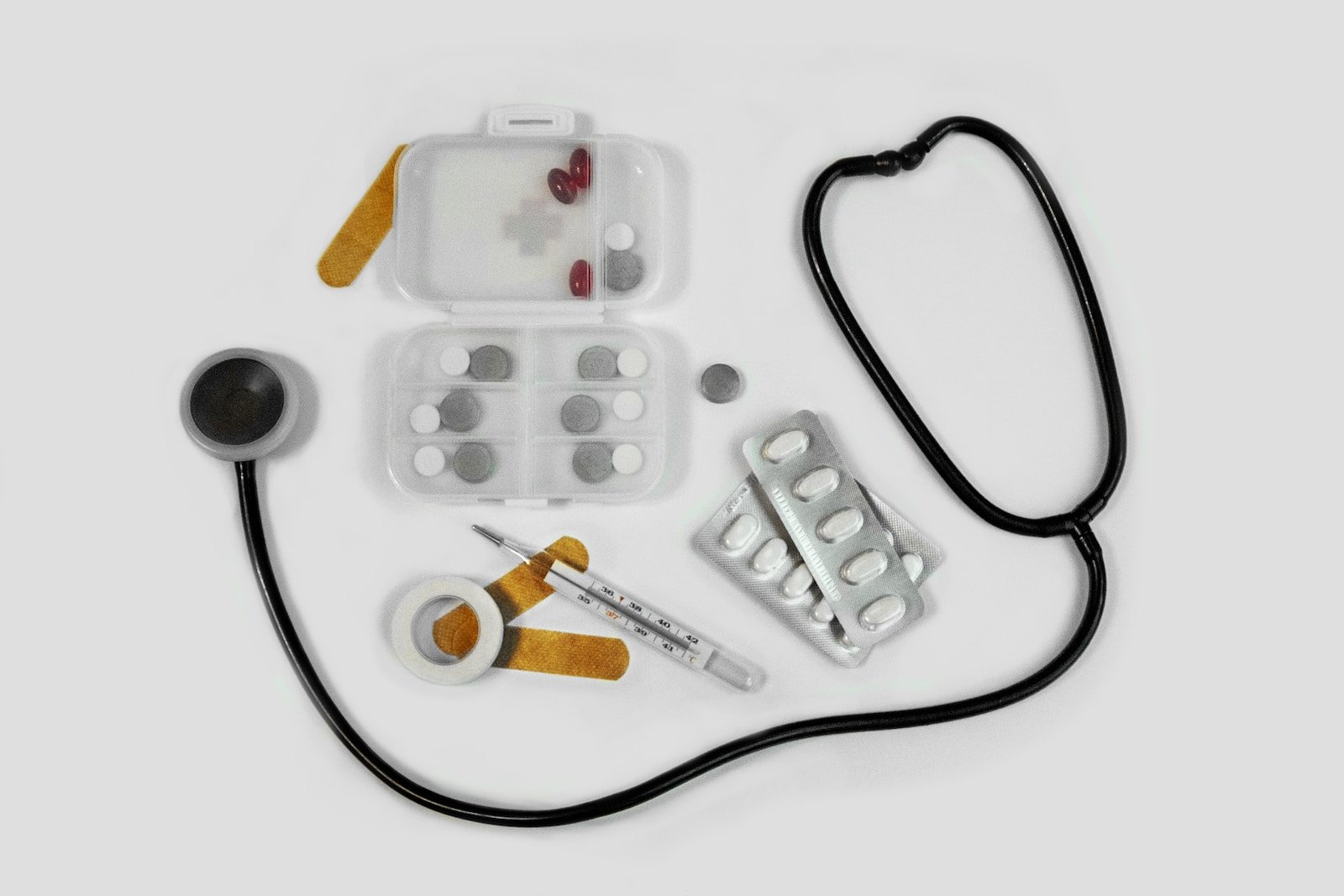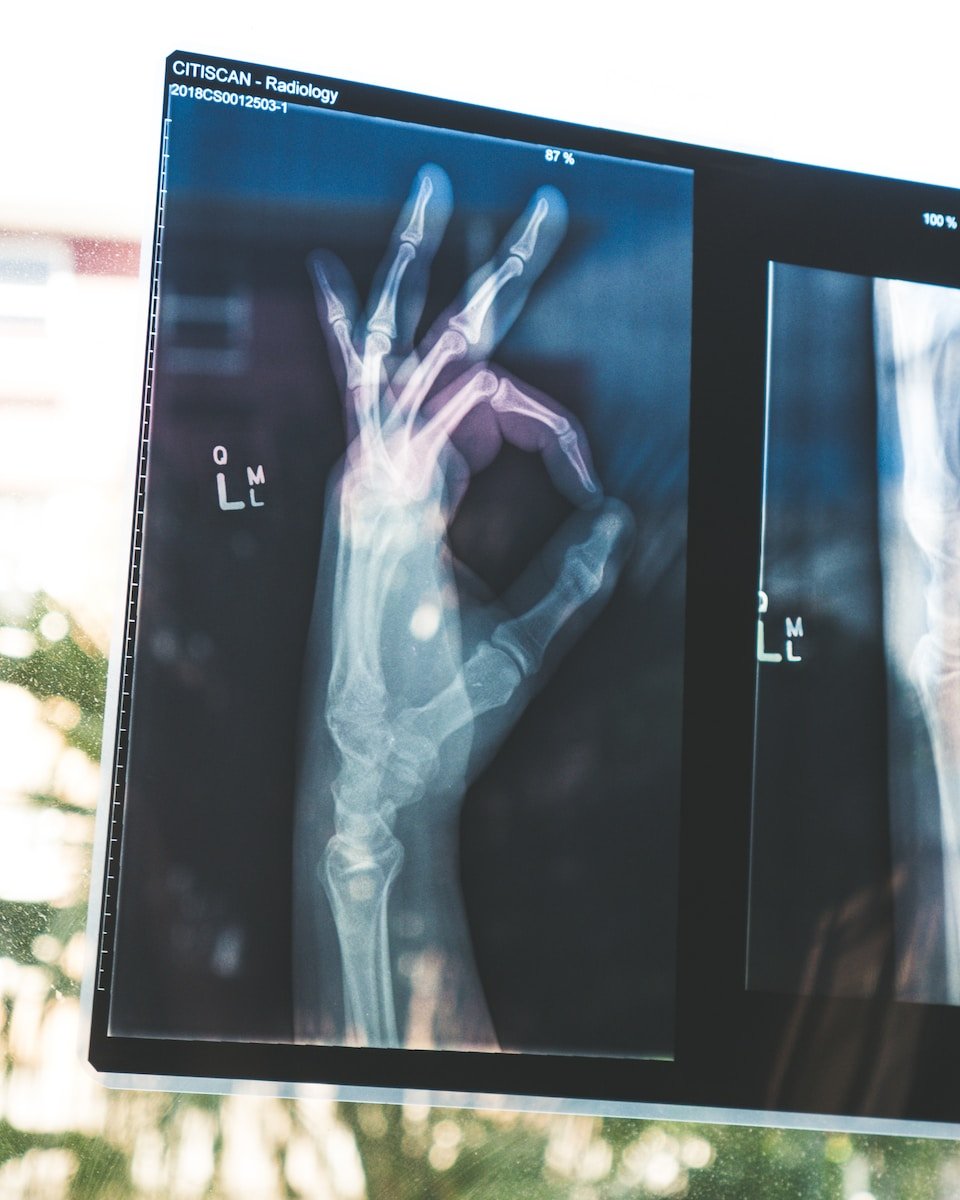I. Introduction
Artificial Intelligence (AI) is revolutionizing various sectors, and healthcare is no exception. This blog post, inspired by the collaboration between Dagogo Altraide’s YouTube channel, ColdFusion, and ABC, explores the transformative potential of AI in the medical field. From improved diagnostics to personalized medicine, AI is set to redefine patient care and medical practices.

Do You Like This Article So Far?
Signup To Our Newsletter to be Notified About Another One.
II. AI’s Role in Improved Diagnostics
AI-powered tools are transforming the diagnostic process, making it faster and more accurate. For instance, AI has successfully diagnosed skin cancer and early-stage lung cancer from medical images and CT scans. By identifying patterns that may be missed by the human eye, AI enables earlier treatment and improved patient outcomes.

III. Personalized Medicine and Drug Discovery
AI is making healthcare more personalized. It tailors treatment plans based on genetic, environmental, and lifestyle factors. AI’s potential in identifying gene mutations and developing gene-targeted therapies is immense. Moreover, AI has accelerated drug discovery, reducing trial and error, and bringing novel treatments to the market faster.
Do You Like This Article So Far?
Signup To Our Newsletter to be Notified About Another One.
IV. Optimizing Hospital Management and Patient Care
AI is optimizing hospital management by analyzing patient flow, bed occupancy, and staff schedules. The Microsoft and Neal Analytics open-source model is a prime example of how AI can allocate resources efficiently and improve patient satisfaction. AI’s predictive abilities aid doctors in making informed decisions about patient care and discharge planning.
V. Drawbacks and Challenges
Despite its benefits, AI in healthcare faces challenges. Data security and privacy are major concerns due to AI’s reliance on networks and large amounts of patient data. Human supervision is essential as AI technology, still in its early stages, may make mistakes with potential dire consequences in the medical industry. Furthermore, considering factors beyond the illness itself, such as societal, economic, and patient history, might be challenging for AI.

VI. Inspiring Stories and Future Possibilities
AI’s impact in healthcare is inspiring. Google Australia’s partnership to enhance hearing technologies and the breakthrough brain decoder developed at the University of Texas are just a few examples. The potential of AI in further transforming healthcare and improving patient outcomes is immense. Innovative startups are leading the way with their impactful solutions.
VII. Conclusion
AI in healthcare is a revolutionary leap in medicine and patient care. From improved diagnostics to personalized medicine, AI is transforming the healthcare landscape. As we embrace AI’s potential in healthcare, we look forward to the ongoing progress in the field.





73 Comments
eskort siteleri
vurcazkircazpatliycaz.P5bOYBuoTp0U
seksi siteler
daktilogibigibi.LNijVaK1czLY
anal sikis siteleri
daxktilogibigibi.L1LIzklhwnHW
KmtckChaip
difference between sildenafil and tadalafil
bahis siteleri porn
yandanxvurulmus.EvMlCLyrqvdx
hepatectomised
hepatectomised xyandanxvurulmus.C1pnnmnjKeMv
brand cialis online
brand cialis online
brand cialis online
Laurat
Shall we exchange links? My website https://zetds.seychellesyoga.com/jml
Irmat
Content for your website https://zetds.seychellesyoga.com/info
Elizabetht
Web Development Wizards https://zetds.seychellesyoga.com/info
Mandyt
Can provide a link mass to your website https://zetds.seychellesyoga.com/info
Bridgett
Your site’s position in the search results https://zetds.seychellesyoga.com/info
Nicolet
Free analysis of your website https://zetds.seychellesyoga.com/info
Judyt
Content for your website https://zetds.seychellesyoga.com/info
Dianat
Web Development Wizards https://zetds.seychellesyoga.com/info
Marciat
Can provide a link mass to your website https://zetds.seychellesyoga.com/info
Sarat
Your site’s position in the search results https://zetds.seychellesyoga.com/info
Jacquelinet
Free analysis of your website https://zetds.seychellesyoga.com/info
Sallyt
SEO Optimizers Team https://zetds.seychellesyoga.com/info
Utnvskish
buy viagra pills uk
Ellat
I offer mutually beneficial cooperation https://zetds.seychellesyoga.com/info
Mariant
Cool website. There is a suggestion https://zetds.seychellesyoga.com/info
Audreyt
I really liked your site. Do you mind https://zetds.seychellesyoga.com/info
Normat
Here’s what I can offer for the near future https://zetds.seychellesyoga.com/info
Utnvskish
can i buy viagra online legally
Utnvskish
get viagra prescription
Naomit
You will definitely like it https://zetds.seychellesyoga.com/info
Kimberlyt
Content for your website https://ztd.bardou.online/adm
Barbarat
Web Development Wizards https://ztd.bardou.online/adm
Margarett
Can provide a link mass to your website https://ztd.bardou.online/adm
Peggyt
Can provide a link mass to your website https://ztd.bardou.online/adm
Dianat
Your site’s position in the search results https://ztd.bardou.online/adm
Leilat
Free analysis of your website https://ztd.bardou.online/adm
Amandat
SEO Optimizers Team https://ztd.bardou.online/adm
Natalyt
I offer mutually beneficial cooperation https://ztd.bardou.online/adm
Madisont
Cool website. There is a suggestion https://ztd.bardou.online/adm
Mollyt
I really liked your site. Do you mind https://ztd.bardou.online/adm
Averyt
Here’s what I can offer for the near future https://ztd.bardou.online/adm
Gracet
Content for your website https://ztd.bardou.online/adm
Cecilt
Web Development Wizards https://ztd.bardou.online/adm
Ginat
Can provide a link mass to your website https://ztd.bardou.online/adm
Leilat
Your site’s position in the search results https://ztd.bardou.online/adm
Jessiet
Free analysis of your website https://ztd.bardou.online/adm
Sandrat
SEO Optimizers Team https://ztd.bardou.online/adm
Eleanort
I offer mutually beneficial cooperation https://ztd.bardou.online/adm
Mayt
Cool website. There is a suggestion https://ztd.bardou.online/adm
Marciat
Content for your website http://myngirls.online/
Zarat
Web Development Wizards http://myngirls.online/
Janett
Can provide a link mass to your website http://myngirls.online/
Reginat
Your site’s position in the search results http://myngirls.online/
Christinet
Free analysis of your website http://myngirls.online/
Maggiet
SEO Optimizers Team http://myngirls.online/
Viviant
I offer mutually beneficial cooperation http://myngirls.online/
Marciat
Content for your website http://fertus.shop/info/
Zarat
Web Development Wizards http://fertus.shop/info/
Janett
Can provide a link mass to your website http://fertus.shop/info/
Reginat
Your site’s position in the search results http://fertus.shop/info/
Maggiet
SEO Optimizers Team http://fertus.shop/info/
Viviant
I offer mutually beneficial cooperation http://fertus.shop/info/
Cherilt
Here’s what I can offer for the near future http://fertus.shop/info/
Madelinet
You will definitely like it http://fertus.shop/info/
Victoriat
The best prices from the best providers http://fertus.shop/info/
Isabellat
Additional earnings on your website http://fertus.shop/info/
Pollyt
Analytics of your website http://fertus.shop/info/
Cecilt
I would like to post an article http://fertus.shop/info/
Vanessat
Shall we exchange links? My website http://fertus.shop/info/
Irist
The offer is still valid. Details http://fertus.shop/info/
Peggyt
We offer cooperation on SEO optimization http://fertus.shop/info/
Carolinet
Content for your website http://fertus.shop/info/
Lindat
Web Development Wizards http://fertus.shop/info/
Zarat
Web Development Wizards http://fertus.shop/info/
Reginat
Your site’s position in the search results http://fertus.shop/info/
Maggiet
SEO Optimizers Team http://fertus.shop/info/